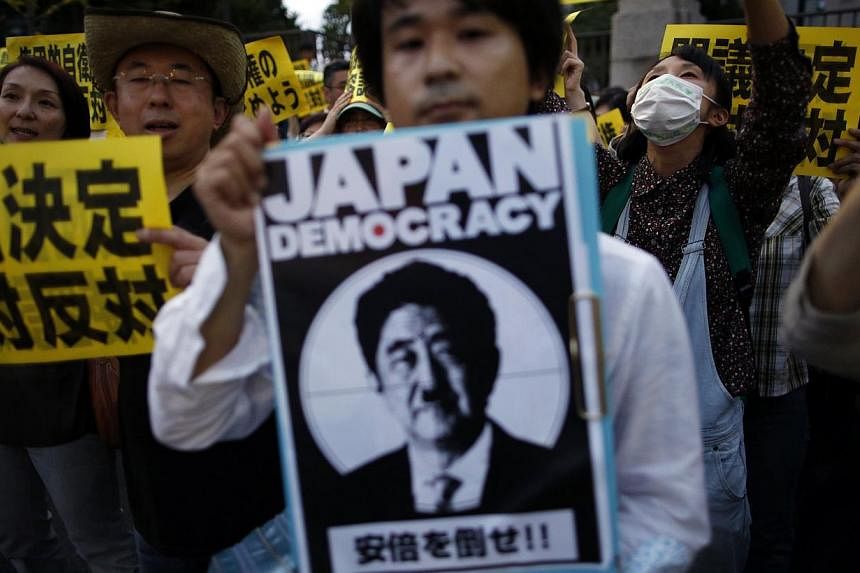On July 1, the Japanese Cabinet decided to "reinterpret" its post- World War II pacifist Constitution by allowing the right to collective self-defence. This marks the end of Japan's self-imposed ban on military assistance to an ally under attack, and allows for the overseas deployment of the Japanese military.
But while China and South Korea immediately condemned the decision, Japan's move should not be perceived as a deliberate attempt to destabilise the regional security environment.
Rather, it is a reaction to the perception of a growing threat from North Korea and China. It is also in response to American criticism of Japan as a "free rider", benefiting from the security umbrella provided by the United States without providing anything in return.
North Korea's continued development of its nuclear and ballistic missile capabilities worries Tokyo. China's strategic rise is another long-term concern.
Although still a distant second to the US (which spends 41/2 times more than China), Chinese defence expenditure dwarfs the Japanese defence budget.
China has added an aircraft carrier to its naval fleet to facilitate its capability to project power. It has also developed stealth fighter jets (J-20) to boost its air force capability, and is able to destroy or disable another nation's military assets from afar by deploying anti-ship/carrier missiles, modern submarines and cyber and anti-satellite weapons.
Japan, therefore, sees China as unilaterally threatening the existing international order. Some examples include China's announcement of an air defence identification zone (ADIZ) last November covering the East China Sea, and recent Chinese behaviour in disputed areas of the East China Sea and South China Sea.
Since coming to power in December 2012, the Abe government has also taken other steps to boost Japan's defence posture.
These include strengthening Japan's navy and air force, enhancing its patrol and surveillance capabilities and building an amphibious capability. Japan and the US are also in the process of revising the US-Japan Guidelines for Defence Cooperation for the first time since 1997.
The removal of the constraints that have prevented Japan from pursuing an activist security policy since World War II have been greeted with considerable concern in North-east Asia. The level of suspicion towards Japan reached a peak last December, when Prime Minister Shinzo Abe visited the controversial Yasukuni Shrine, where several convicted Japanese war criminals are interred.
These suspicions were reinforced by the release of a report on World War II sex slaves last month. The report claimed that the 1993 Japanese government apology resulted from behind- the-scenes negotiations with South Korea and raised concerns that Japan was not sincere about its apology.
However, Japan's recent security measures are part of a long- term trend dating back to the early 1990s. Indeed, the build-up of defence capabilities reflects Japan's re-emergence as a normal state.
Beginning in 1992, Japan's Self-Defence Forces have engaged in humanitarian and disaster relief duties, participated in the Afghanistan and Iraq wars and developed strategic partnerships with Australia, India, the Philippines and Vietnam. In 2007, the Japan Defence Agency became Japan's Ministry of Defence.
Effective domestic institutions within Japan, the pacifism of large sections of its population, and an active civil society should provide some reassurance to Japan's Asian neighbours.
The US-Japan military alliance also acts as a constraint on Japanese adventurism.
Nevertheless, Japan's denial of its actions during World War II continues to tarnish its image. Unless Tokyo's relations with its immediate neighbours improve, Japan will continue to be constrained in playing a wider role in international affairs.
Barry Desker is the dean of the S. Rajaratnam School of International Studies (RSIS), Nanyang Technological University, and Bhubhindar Singh is an associate professor at RSIS.

